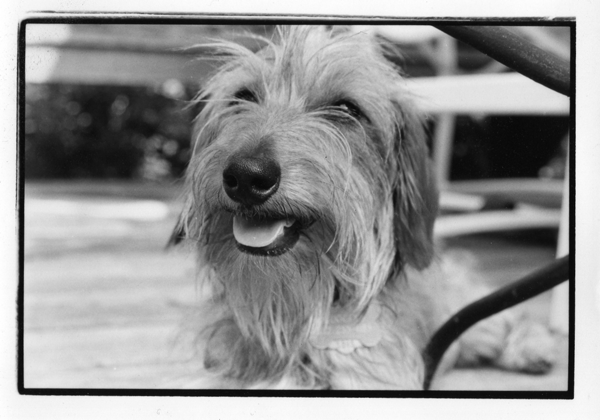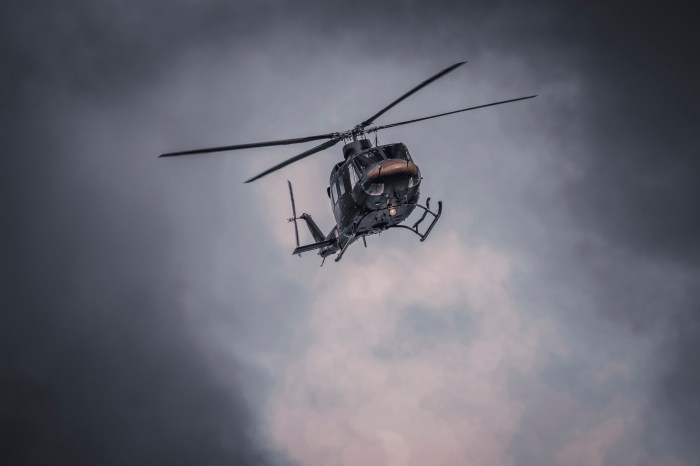
BY MICHELE HERMAN | The dog got a job offer. As well he should. Unlike many human employees, he never holds a grudge and rarely whines. His patience is nearly infinite. He has been known to wait on the sidewalk for half an hour while his owner conducts neighborhood business.
It was Rebecca, the children’s librarian at the Jefferson Market Library, who saw Ruggles’s potential. My Dachshund and I have long been fans of the children’s room and its friendly staff, though I have few excuses to go now that my kids get their reading needs met elsewhere. Last year Rebecca told me she was planning to start a program in which kids read aloud to dogs, and was there any chance Ruggles (always a perfect gentleman at the library) might be interested? We’re in, I said.
The idea, developed in 1999 by the R.E.A.D. program in Utah, is that kids struggling with their reading are more apt to relax and improve with a friendly and nonjudgmental dog curled up beside them. Now there are programs all around the country, run by a variety of organizations. Several recent university studies bear out the theory: Kids who read to dogs over a period of weeks show more gains in reading skill than the dogless control group, whose members — just as telling — tend to stop showing up.
I signed us up for a training course last summer at the Good Dog Foundation. (There are two main pet-therapy organizations in town — Good Dog and Delta — and, like canines, they are territorial, each one staking out its own hospitals, nursing homes, schools and other venues.)
We passed the six-class course, aimed mostly at ensuring both members of each team are well behaved and don’t startle easily. Now I proudly carry our badge and his jaunty Good Dog scarf with me everywhere.
Our library visits take place monthly in the Willa Cather Room off the children’s room, presided over by a large photo of Cather in a middy blouse and necktie, smiling at us as if she’s tickled. I can’t think of a better patron saint of Village readers.
On our first visit, Ruggles is a little restless. I acclimate myself to my surroundings — the Victorian carving, the pattern in the rug that always reminds me of pink baby carrots — from a central location using just my eyes, but he can’t settle down until he’s done a thorough sniffing tour.
The librarian sends in a new reader every 20 minutes. We sit on the floor, surrounded by a big assortment of picture books featuring animals that she’s set out. First I get a bespectacled little home-schooled girl with long curly hair, who picks out a book about Carl the Rottweiler. I hide my disappointment — I’ve always found the Carl books, with their watercolor illustrations, too earnest and plodding. But this isn’t about me; I’m just the handler. This is about the novelty and magic of reading to a dog.
She launches with great enthusiasm into the story of Carl’s mild little adventure involving a family of ducks. Some of the words, like “says,” are hard for her. My job, as I understand it, is to monitor Ruggles. But being a mom and a teacher from way back, I gently talk her through some reading rules, like the special pirate sound you get when an “a” comes up against an “r.”
She’s a quick study. Ruggles curls up beside her and sighs. (Another thing to recommend dogs: Their sighs signify contentment and not exasperation.) When Rebecca pokes her head in with a five-minute warning, the girl tells me she really wants to finish.
“This is the first book I’ve ever read,” she says proudly. I’m speechless — I had no idea.
Later that session I get a wiggly boy who picks out the classic “Are You My Mother?” which has everything that Carl lacks: pathos, life and death suspense, wit (baby bird to earth mover: “You are not my mother, you are a snort.”). This boy has a funny habit of actually saying “period” at the end of sentences. I decide not to say a word, since it’s not impeding his enjoyment or comprehension.
My biggest challenge is a tiny, adorable boy, a repeat visitor, who is dying to have Ruggles lick his hand. Ruggles is not in a licking mood. Finally I have the boy cup some water in his hand, and voila, Ruggles laps it up.
Before the library program was up and running, Ruggles and I made a couple of visits to a day program on W. 13th St. for developmentally disabled adults. I chose it because it’s nearby, but I went reluctantly, afraid it might be depressing. I’ve seen the people from this program for years, a small, slow-moving conga line in the vicinity of W. 13th St., some of its members drooling, some muttering, others letting their hands freely roam the air.
But the director welcomes us into the sunny common room on the second floor, smelling of baking brownies and packed with excited people because it’s Thursday and the dogs are coming. Because these people are free of certain mores that govern and constrain the rest of us — sucking in stomach muscles, keeping legs together when sitting, arranging breasts carefully inside the brassiere — this is not the best crowd for laps for Ruggles to perch on.
Still I work my way around the room offering Ruggles while the four or five other therapy teams do likewise. When I get a yes, as I do from most of the crowd, I place him across whatever surface is available and situate myself so he can see me. He’s antsy only when the lap is antsy.
One small round man says loudly and gleefully to a pretty staff member, “Give me some sugar, baby,” and she calmly reminds him to use appropriate language. A young woman with the eagerness and braids of a little girl keeps taking my hand as if I were her mom. One man with a strong borough accent plies me with thoughtful questions: Is he a Dachshund, he wants to know, surprising me by pronouncing the word the European way: Dah-shoond. Why do you never see people walking cats on the street? They don’t like leashes, I say. Why can’t they walk without a leash? I realize I have no idea.
The staff members are busy elsewhere when I come upon a gray-haired man sitting alone in the rear muttering “turkey, stuffing, mashed potatoes, pumpkin pie” over and over, nodding his head and chopping the air with each word. Because I don’t know not to, I offer Ruggles, and he accepts him. He continues to mutter his Thanksgiving list, but instead of chopping the air with each word, he pats Ruggles’s wiry coat. It’s only on our next visit, when one of the staff members gives me a sharp look and cautions me to keep my distance from him, that I realize that Ruggles has excelled at his job, and I’m the lucky handler who got to witness a small miracle.

















